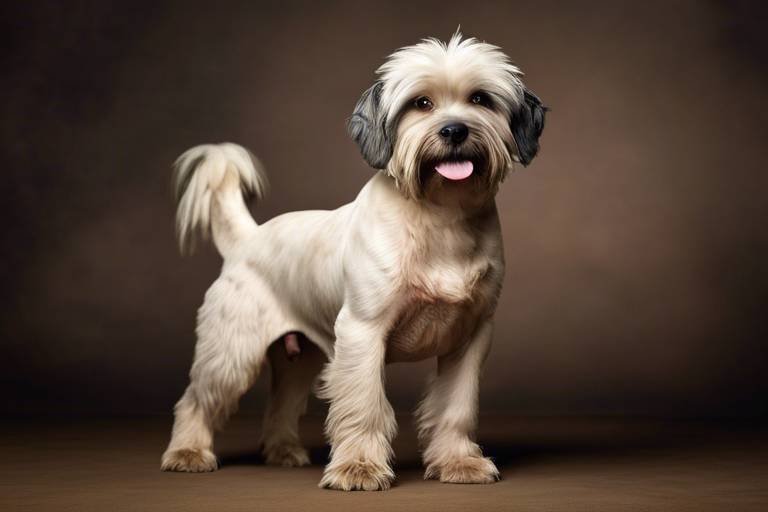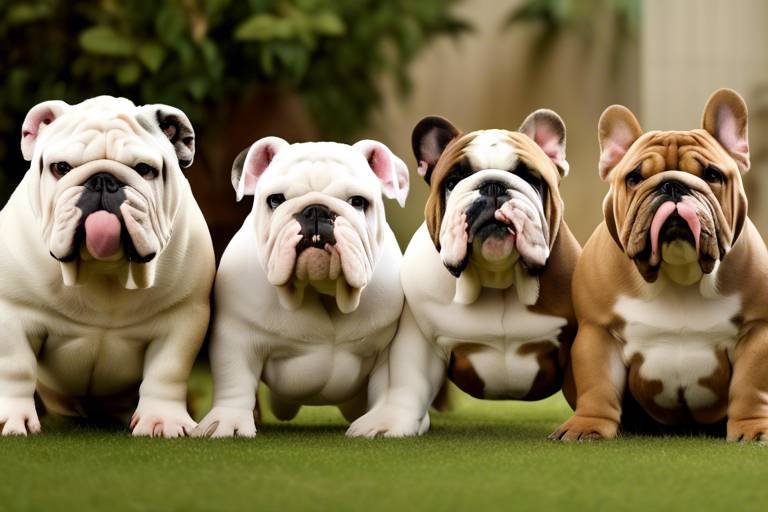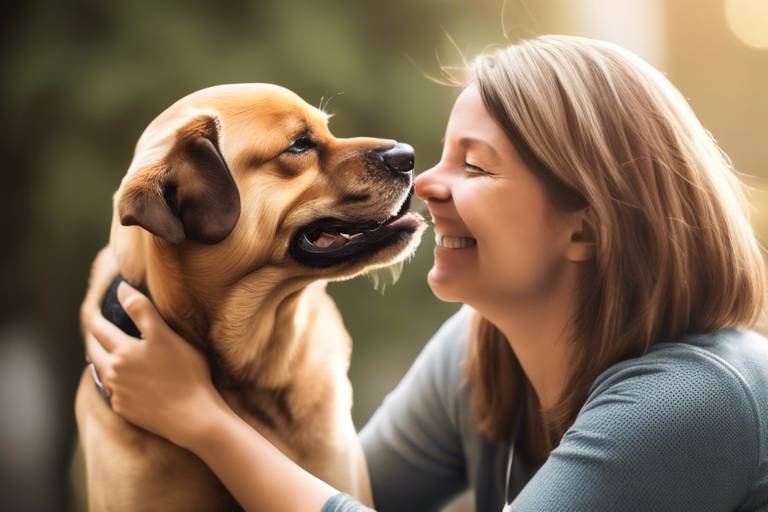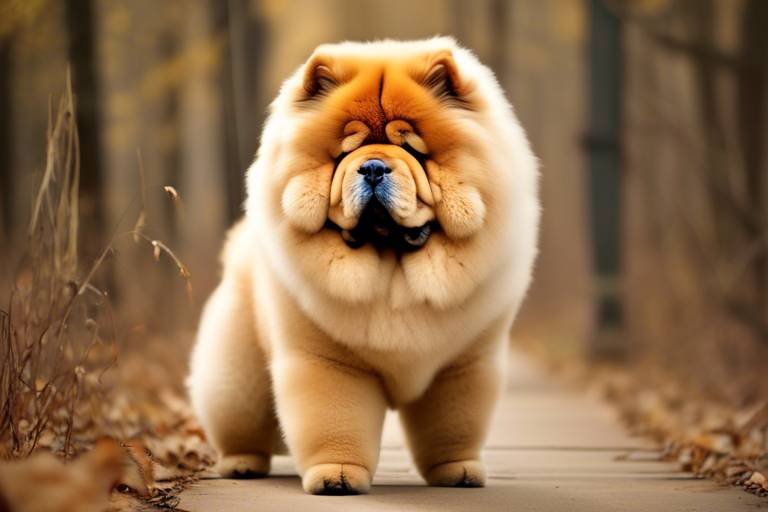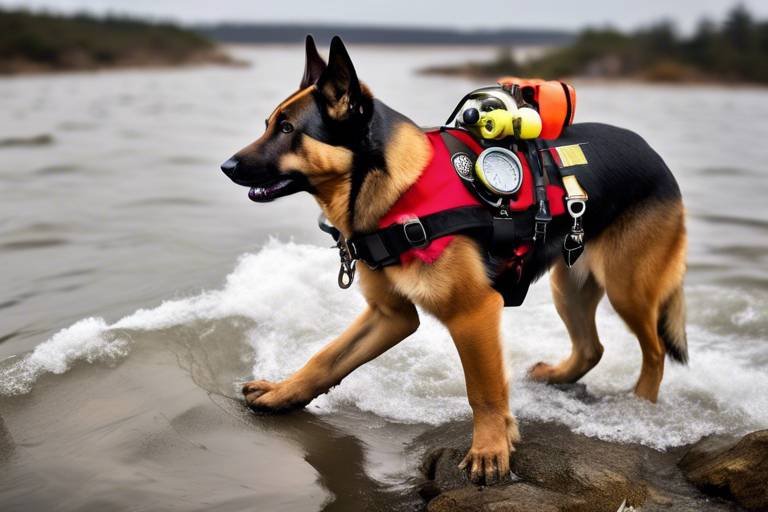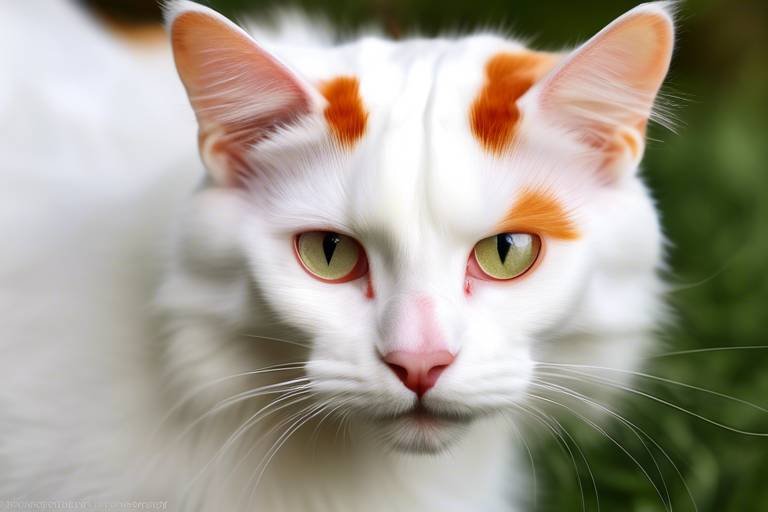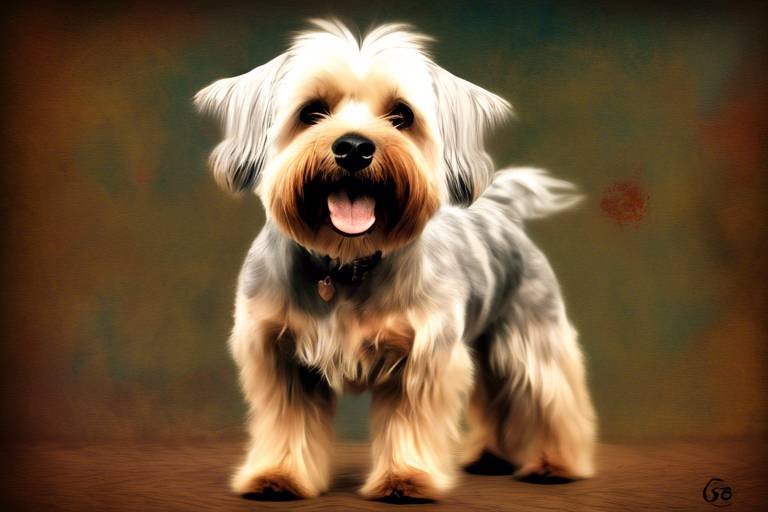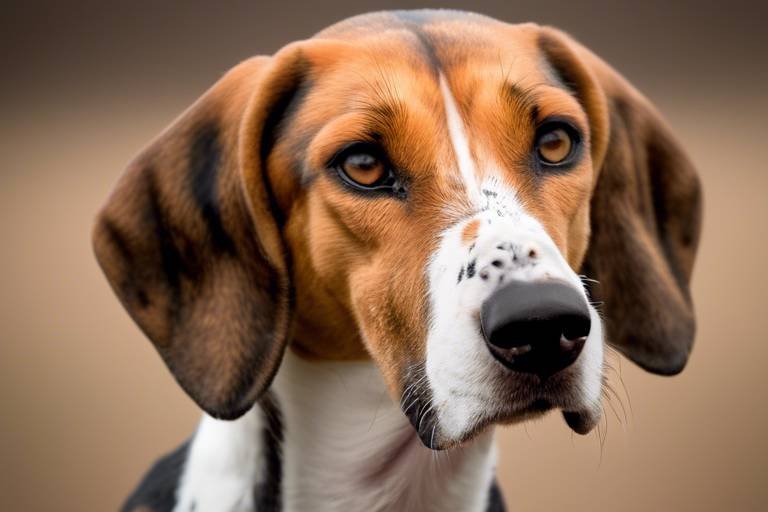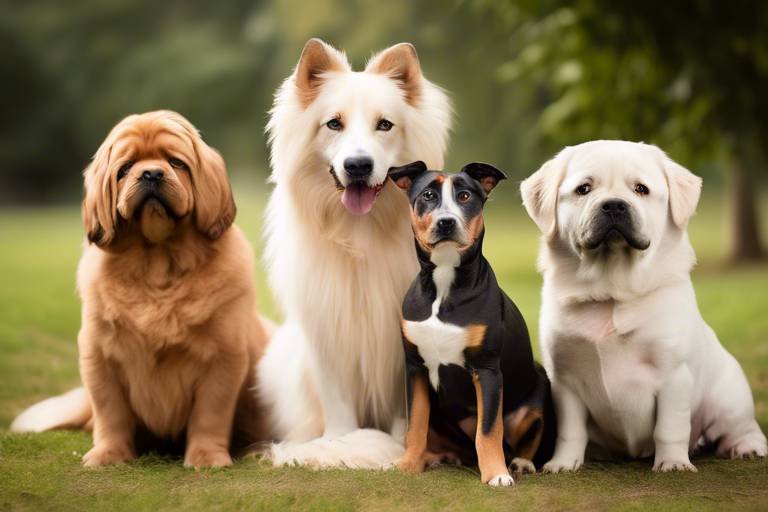The Unique Traits of the Shikoku Dog
The Shikoku dog is not just any breed; it embodies a blend of history, loyalty, and agility that captivates dog lovers around the globe. Originating from Japan, this breed has a fascinating story that intertwines with the rich tapestry of Japanese culture. The Shikoku is renowned for its spirited personality, making it a beloved companion for many families. But what truly sets this breed apart? Let's dive into the distinctive characteristics of the Shikoku dog, exploring its origins, physical traits, temperament, and care needs.
The Shikoku dog has a rich history rooted in Japan. Understanding its origins helps to appreciate its unique traits and the role it has played in Japanese culture over the centuries. This breed is believed to have descended from the ancient Japanese dog breeds, specifically the native Shikoku Island dogs. Historically, Shikoku dogs were used for hunting boar and other game, showcasing their agility and keen instincts. Their ability to navigate the rugged terrains of Shikoku Island has made them a symbol of resilience and adaptability.
Shikoku dogs possess a striking appearance with a well-proportioned body, erect ears, and a curled tail. Their physical traits contribute to their agility and strength, making them excellent working dogs. Standing at around 17 to 21 inches tall and weighing between 35 to 65 pounds, Shikokus are typically medium-sized. They exhibit a sturdy build that combines strength and agility, allowing them to excel in various activities, including hunting and agility sports.
Typically medium-sized, Shikoku dogs exhibit a sturdy build that combines strength and agility. Their muscular frame allows them to excel in various activities, including hunting and agility sports. With their balanced proportions, Shikokus are well-equipped for outdoor adventures, whether it's hiking up a mountain or sprinting through open fields. Their strong legs and powerful physique enable them to cover ground quickly, making them adept at chasing after prey.
The Shikoku's double coat is weather-resistant, providing protection in various climates. Common colors include sesame, red, and black and tan, each contributing to their unique aesthetic appeal. The outer coat is coarse and straight, while the undercoat is soft and dense, offering insulation against harsh weather conditions. This dual-layered coat not only enhances their beauty but also serves a functional purpose, ensuring they remain comfortable regardless of the environment.
With a sharp, expressive face, Shikokus have a keen gaze that reflects their intelligence and alertness. Their facial structure enhances their ability to communicate with both humans and other animals. The triangular ears stand erect, giving them an attentive appearance, while their dark, almond-shaped eyes exude a sense of curiosity and awareness. These features not only contribute to their charm but also play a crucial role in their interactions with the world around them.
Known for their spirited and independent nature, Shikoku dogs are both loyal companions and strong-willed individuals. Understanding their temperament is crucial for effective training and socialization. They are often described as confident and courageous, traits that make them excellent watchdogs. However, this independence can sometimes translate into a stubborn streak, requiring owners to approach training with patience and consistency.
Training a Shikoku requires consistency and patience due to their independent streak. Early socialization is vital to ensure they grow into well-adjusted adults, capable of interacting positively with people and other pets. Introducing them to various environments, people, and other animals will help them develop a balanced temperament. It's essential to make training sessions engaging and fun, as Shikokus thrive on positive experiences.
Utilizing positive reinforcement methods fosters a trusting relationship between the dog and owner. Reward-based training encourages desired behaviors and strengthens the bond between the Shikoku and its handler. Simple techniques like treats, praise, and playtime can go a long way in motivating these intelligent dogs. Remember, a happy Shikoku is a well-trained Shikoku!
Without proper training and socialization, Shikoku dogs may develop behavioral problems such as stubbornness or aggression. Identifying and addressing these issues early is essential for a harmonious household. Regular training sessions, combined with socialization opportunities, can help mitigate these concerns. If you notice any signs of anxiety or aggression, seeking professional guidance can make a significant difference.
Like all breeds, Shikoku dogs are prone to certain health issues. Regular veterinary check-ups and a balanced diet are critical in maintaining their health and longevity throughout their lives. Being proactive about their health can prevent many common issues and ensure your Shikoku remains a happy and active member of the family.
Shikokus can be susceptible to hip dysplasia and eye conditions. Being aware of these potential health problems allows owners to take proactive measures to ensure their dog's well-being. Regular screenings and maintaining a healthy weight can significantly reduce the risk of these conditions.
Routine veterinary care, including vaccinations and dental check-ups, is vital for Shikoku dogs. Preventative measures help catch health issues early, contributing to a longer, healthier life for these loyal companions. Additionally, a balanced diet and regular exercise are essential components of their overall health.
- What is the average lifespan of a Shikoku dog? The average lifespan of a Shikoku is around 12 to 15 years, depending on health and care.
- Are Shikoku dogs good with children? Yes, Shikoku dogs can be great with children if socialized properly from a young age.
- How much exercise do Shikoku dogs need? Shikoku dogs require regular exercise, ideally at least an hour of activity each day to keep them healthy and happy.
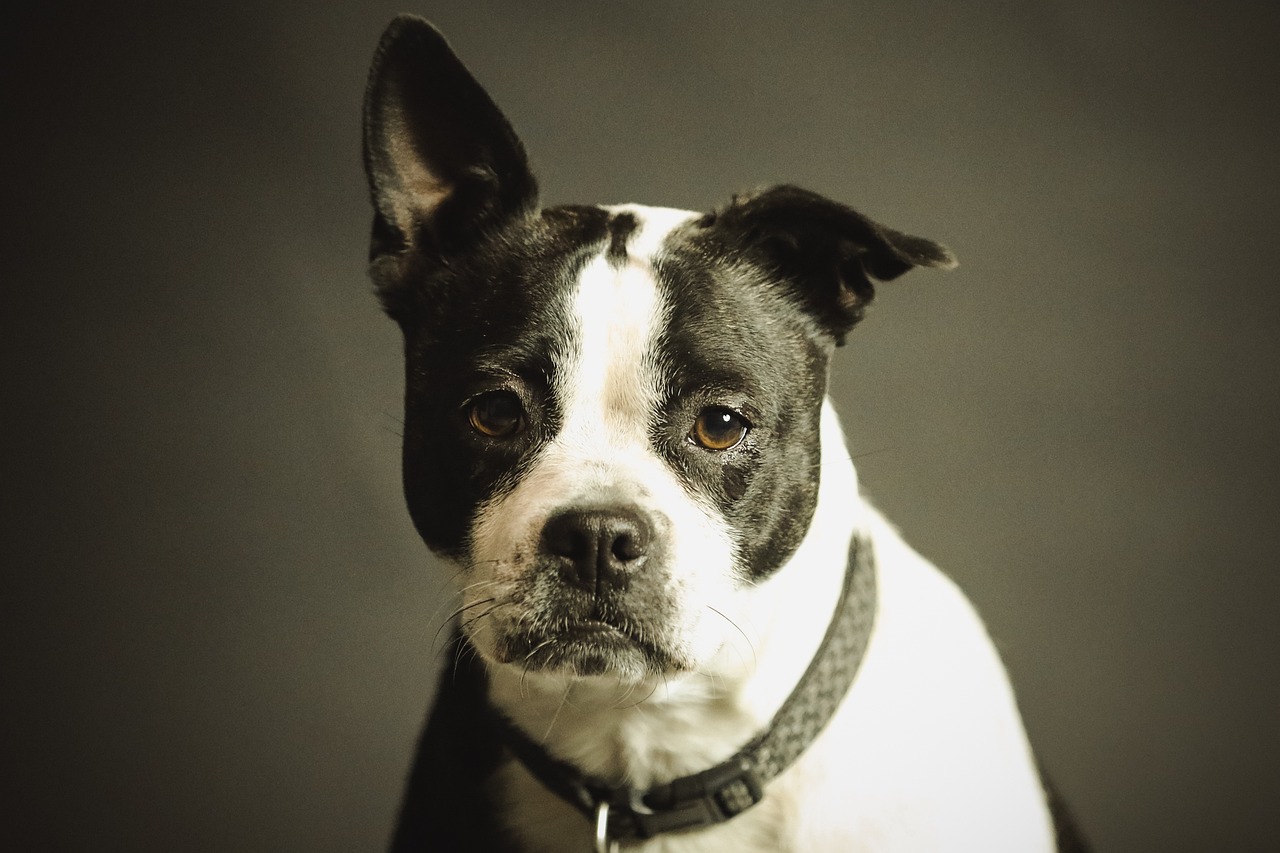
Origin and History
The Shikoku dog is a breed that hails from the beautiful and rugged terrain of Japan, specifically from the Shikoku Island. With a history that dates back several centuries, these dogs were originally bred for hunting and tracking game, particularly boar. Their strong hunting instincts and remarkable agility made them invaluable companions to the local hunters. In fact, the Shikoku is one of the Japanese native breeds that has been recognized for its unique qualities and contributions to Japanese culture.
Shikoku dogs are often associated with the Japanese culture and are celebrated for their loyalty and spirited nature. They were initially known as Takashima Inu but later adopted the name Shikoku, which translates to "four provinces," reflecting the regions where they were bred. This breed has not only survived the test of time but has also thrived, maintaining its distinct characteristics that set it apart from other breeds.
Throughout history, Shikoku dogs have been depicted in various forms of Japanese art, showcasing their significance in the cultural landscape. These dogs were often revered as symbols of protection and loyalty, embodying the values that the Japanese people hold dear. Their presence in folklore and traditional stories further cements their status as a treasured breed.
As Japan modernized, the Shikoku dog faced challenges that threatened its existence. However, dedicated breeders and enthusiasts worked tirelessly to preserve this unique breed, ensuring that it remained a part of Japan's rich heritage. Today, Shikoku dogs are not only cherished as pets but also recognized for their exceptional skills in various dog sports, including agility competitions and obedience trials.
In summary, the Shikoku dog is more than just a breed; it is a living testament to Japan's history and culture. Its journey from a hunting companion to a beloved family pet reflects the deep bond between humans and dogs, showcasing the enduring spirit of this remarkable breed.
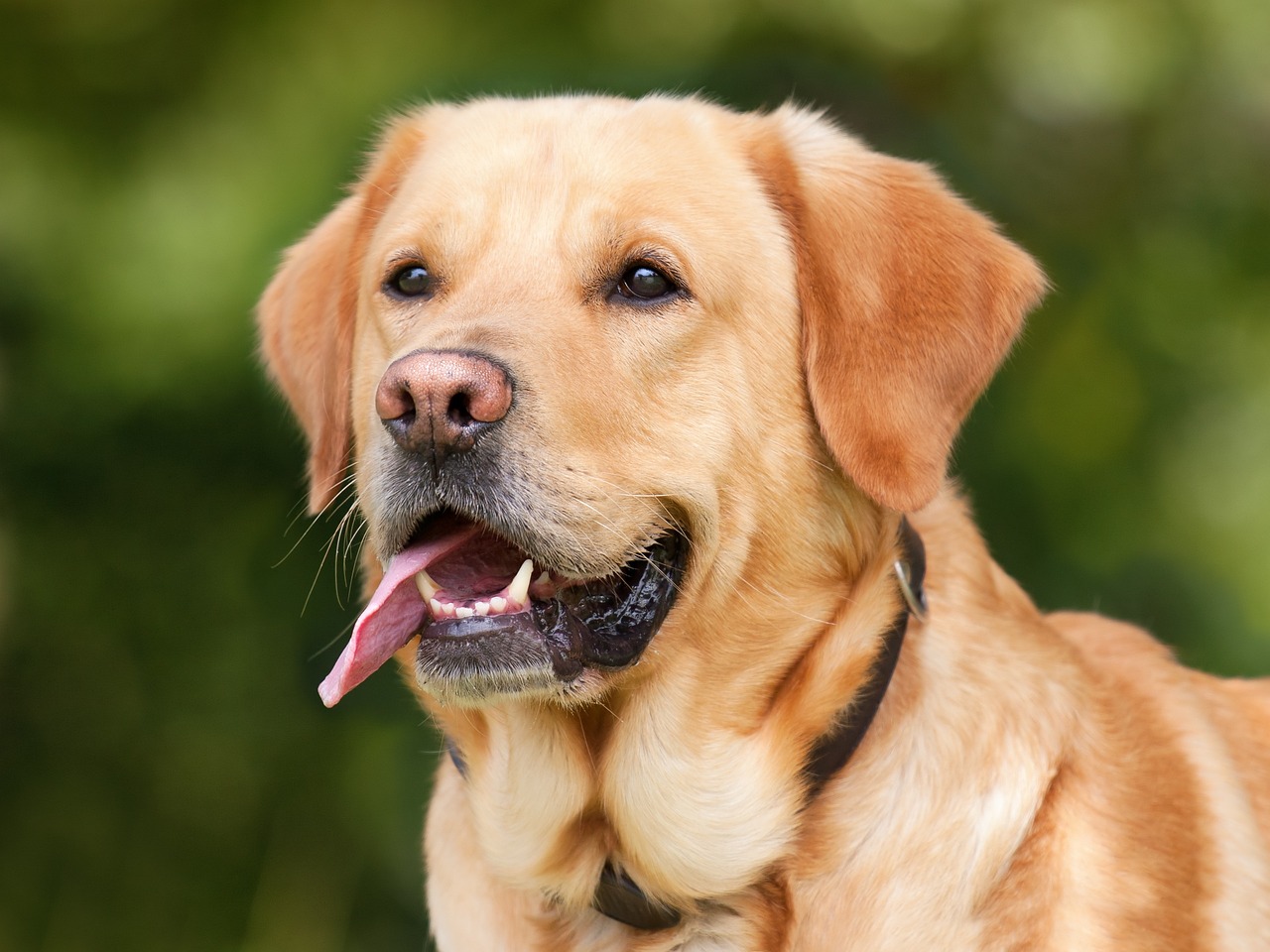
Physical Characteristics
The Shikoku dog is a breed that captivates with its striking appearance and unique physical traits. These dogs are medium-sized, typically weighing between 35 to 55 pounds and standing about 17 to 21 inches tall at the shoulder. Their well-proportioned bodies reflect a perfect blend of strength and agility, making them not only beautiful but also highly functional. Imagine a dog that combines the athleticism of a sprinter with the grace of a dancer—this is what you get with a Shikoku.
One of the most distinctive features of the Shikoku is its erect ears, which stand tall and alert, giving it an expressive look. These ears are not just for show; they enhance the dog's ability to hear sounds from afar, which is crucial for a breed that was historically used for hunting. The Shikoku's curled tail, which rests over its back, adds to its charm and is a hallmark of the breed. This tail is not only a visual delight but also serves as a communication tool, reflecting the dog's mood and excitement levels.
Shikoku dogs have a sturdy build that showcases their muscular frame. This robust physique is essential for their historical roles as hunting companions, enabling them to traverse rugged terrains with ease. They are built for endurance, allowing them to participate in various activities, from agility sports to long hikes. Their strong legs and agile bodies make them capable of swift movements, which is vital when chasing game or engaging in playful activities. Just picture a Shikoku gracefully bounding across a field, its muscles rippling under its coat—it's a sight to behold!
The Shikoku's double coat is another remarkable feature that contributes to its overall appeal. This weather-resistant coat provides insulation in colder climates, allowing the dog to thrive in various environments. The outer coat is straight and harsh, while the undercoat is soft and dense, creating a protective barrier against the elements. Common colors include:
- Sesame: A beautiful blend of red and black hairs.
- Red: A vibrant and striking hue that stands out.
- Black and Tan: A classic color combination that adds elegance.
Each color adds to the Shikoku's unique aesthetic appeal, making them not only functional but also visually stunning.
When you look into a Shikoku's eyes, you see a keen intelligence and alertness that is hard to miss. Their sharp, expressive faces are framed by a well-defined muzzle, which gives them a dignified appearance. This facial structure enhances their ability to communicate not just with humans but also with other animals. Their gaze can convey a range of emotions—from curiosity to playfulness—making them incredibly engaging companions. The way they tilt their heads when you talk to them is simply adorable and adds to their charm.
In summary, the Shikoku dog is a breed that embodies strength, agility, and beauty. Their unique physical characteristics not only make them stand out in a crowd but also serve practical purposes that reflect their historical roles. Whether you are captivated by their striking appearance or their robust build, one thing is clear: the Shikoku is a breed that leaves a lasting impression.
Q: What is the average lifespan of a Shikoku dog?
A: The average lifespan of a Shikoku dog is typically between 12 to 15 years, depending on various factors such as genetics and overall health care.
Q: Are Shikoku dogs good with children?
A: Yes, Shikoku dogs can be excellent companions for children, especially when raised together. They are known for their loyalty and protective nature.
Q: How much exercise do Shikoku dogs need?
A: Shikoku dogs require regular exercise to stay healthy and happy. Daily walks, playtime, and activities that challenge their agility are essential.
Q: Do Shikoku dogs shed a lot?
A: Shikoku dogs do shed, especially during seasonal changes. Regular grooming can help manage shedding and keep their coat healthy.
Size and Build
The Shikoku dog is a magnificent blend of strength and agility, typically falling into the medium-sized category. These dogs usually weigh between 35 to 55 pounds (16 to 25 kg) and stand around 17 to 20 inches (43 to 51 cm) tall at the shoulder. Their sturdy build is not just for show; it’s a testament to their history as working dogs, originally bred for hunting in the mountainous regions of Japan. Imagine a dog that can navigate rocky terrain with ease while still being compact enough to curl up in your lap after a long day of adventure!
One of the most striking aspects of the Shikoku's physique is its well-proportioned body, which is muscular yet nimble. Their strong legs allow for impressive speed and agility, making them exceptional companions for outdoor activities such as hiking or agility sports. When you see a Shikoku in motion, it’s as if they were born to run, their movements fluid and graceful, reminiscent of a dancer gliding across the stage.
Moreover, the Shikoku’s build supports their versatility. They excel in various roles, whether as a family pet, a hunting partner, or a competitor in dog sports. Their robust frame is complemented by a deep chest and a strong back, which contribute to their endurance. This breed is not just about looks; they are built for performance, embodying the spirit of a true working dog.
To give you a clearer picture, here’s a quick overview of the Shikoku dog’s size and build:
| Measurement | Male | Female |
|---|---|---|
| Height | 18-20 inches | 17-19 inches |
| Weight | 35-55 lbs | 30-50 lbs |
In conclusion, the Shikoku dog’s size and build are not merely physical attributes; they are integral to the breed’s identity. Their combination of strength, agility, and endurance makes them not only visually appealing but also capable companions for those who enjoy an active lifestyle. Whether you're scaling a mountain or just enjoying a leisurely stroll, the Shikoku will be right there by your side, ready for whatever adventure comes next!
- What is the average lifespan of a Shikoku dog?
The average lifespan of a Shikoku dog is typically between 12 to 15 years. - Are Shikoku dogs good with children?
Yes, Shikoku dogs can be great with children, especially when properly socialized from an early age. - Do Shikoku dogs require a lot of exercise?
Absolutely! They are an active breed and require regular exercise to stay healthy and happy. - How often should I groom my Shikoku?
Regular grooming is essential, especially during shedding seasons. A good brush once a week is usually sufficient.
Coat and Colors
The Shikoku dog is not only admired for its spirited personality but also for its stunning coat, which plays a significant role in its overall appeal. One of the most striking features of this breed is its double coat. This unique coat structure consists of a soft, insulating undercoat and a coarser outer coat that offers protection against harsh weather conditions. Imagine a warm, cozy blanket that keeps you snug during winter nights; that’s what the Shikoku’s coat does for them!
In terms of color, Shikoku dogs come in a variety of shades that enhance their aesthetic charm. The most common colors include:
- Sesame: A beautiful blend of red with black-tipped hairs, creating a unique multi-toned effect.
- Red: A classic color that ranges from a light golden hue to a deep, rich red.
- Black and Tan: A striking combination that showcases a black coat with tan markings, giving them a distinguished appearance.
These colors not only contribute to the dog’s beauty but also reflect their cultural significance in Japan, where certain colors may be associated with specific traits or symbolism. For instance, a red Shikoku is often considered to bring good luck and prosperity. This cultural connection adds an extra layer of appreciation for the breed, as owners often feel a sense of pride in their dog’s unique coloring.
Moreover, the Shikoku's coat requires regular grooming to maintain its health and appearance. Brushing them a couple of times a week helps to remove loose hairs and prevent matting, while also allowing you to check for any skin issues that may arise. Think of grooming as a bonding experience; it’s a time to connect with your dog while keeping them looking fabulous!
In summary, the coat and colors of the Shikoku dog are not just about looks; they serve practical purposes and are steeped in cultural significance. Whether you’re drawn to the rich red hue or the captivating sesame coat, each Shikoku is a unique masterpiece, reflecting the beauty of this remarkable breed.
- What kind of grooming do Shikoku dogs need? Regular brushing is essential to maintain their double coat and prevent matting.
- Are Shikoku dogs hypoallergenic? No, Shikoku dogs are not considered hypoallergenic as they shed moderately.
- What is the lifespan of a Shikoku dog? Typically, Shikoku dogs live between 12 to 15 years with proper care.
Facial Features
The Shikoku dog possesses a face that is as striking as it is expressive. With a sharp, well-defined muzzle, these dogs exude an air of intelligence and alertness that is hard to ignore. Their eyes are almond-shaped and dark, often reflecting a sense of curiosity and determination. It's almost as if they can see right through to your soul, making them not just pets, but companions that understand you on a deeper level.
One of the most remarkable aspects of the Shikoku's facial structure is its ears. Standing erect, these triangular ears add to their alert appearance and serve a functional purpose—helping them pick up sounds from afar. The ears also contribute to their expressive nature; when they're happy, they perk up, and when they're unsure, they may tilt slightly, showcasing their mood and emotions.
Furthermore, the Shikoku's facial markings can vary significantly, adding to their unique aesthetic appeal. Some may have distinctive patterns or colorations that set them apart from others. This individuality not only enhances their beauty but also allows owners to form a deeper bond with their furry friends, as every Shikoku has its own story told through its features.
Another fascinating aspect of their facial features is the expression they can convey. Whether it’s a playful grin or a serious gaze, Shikoku dogs are masters at communicating their feelings. This ability to express emotions through their faces makes them exceptional companions, as they can easily connect with their human families.
In summary, the Shikoku dog's facial features are not just for show; they are a window into the dog's personality and intelligence. From their sharp eyes to their alert ears, every aspect of their face plays a role in their ability to connect with people and other animals alike. This connection is a fundamental part of what makes the Shikoku breed so beloved by dog enthusiasts around the world.
- What is the average lifespan of a Shikoku dog?
The average lifespan of a Shikoku dog is typically around 12 to 15 years, depending on their health and care. - Are Shikoku dogs good with children?
Yes, Shikoku dogs can be great with children, especially if they are socialized from a young age. - How much exercise do Shikoku dogs need?
Shikoku dogs are active and require at least an hour of exercise each day to stay healthy and happy. - Do Shikoku dogs shed a lot?
They have a double coat that sheds moderately, especially during seasonal changes, so regular grooming is essential. - Can Shikoku dogs be left alone?
While they are independent, Shikoku dogs thrive on companionship and should not be left alone for long periods.
Temperament and Behavior
The Shikoku dog is not just a pet; it’s a vibrant personality wrapped in fur! Known for their spirited and independent nature, these dogs are often described as having a **strong-willed** character. This breed is incredibly loyal to its family, often forming deep bonds that can be likened to the ties we share with our closest friends. However, their independence can sometimes lead them to think for themselves, making them a bit stubborn at times. This means that while they are incredibly affectionate, they also require a confident owner who can guide them with patience and consistency.
One of the standout traits of the Shikoku is their **intelligence**. They are quick learners, but their independent streak means that they might not always want to obey commands right away. Imagine trying to convince a teenager to clean their room; that’s somewhat akin to training a Shikoku! Therefore, early socialization is essential. Exposing them to various environments, people, and other pets helps them grow into well-adjusted adults. This exposure not only aids in their development but also enhances their ability to adapt to different situations, making them more versatile companions.
It's crucial to understand that Shikoku dogs thrive on **mental stimulation** and physical activity. Without enough engagement, they can become bored, leading to behaviors that are less than desirable. Think of it this way: a bored Shikoku is like a kid stuck inside on a sunny day—restless and likely to get into trouble! Regular exercise, along with interactive toys and training sessions, can keep their minds sharp and their spirits high. Additionally, they often enjoy activities that challenge them, such as agility training or obedience competitions.
Despite their independent nature, Shikokus are known to be quite social. They generally get along well with other dogs, especially when properly socialized from a young age. Their playful demeanor can make them great companions for families and individuals alike. However, it’s essential to remember that their hunting instincts can sometimes kick in, especially when they spot smaller animals. This instinctive behavior can lead to a chase, so supervision during outdoor activities is always a good idea.
In summary, the Shikoku dog is a fascinating blend of loyalty, independence, and intelligence. They require a loving owner who understands their unique temperament and is willing to invest time in training and socialization. With the right approach, these dogs can become not only loyal companions but also cherished family members.
- Are Shikoku dogs good with children? Yes, Shikoku dogs can be great with children, especially if they are socialized from a young age. They are playful and enjoy being part of family activities.
- How much exercise do Shikoku dogs need? Shikoku dogs require a good amount of exercise daily. Regular walks, playtime, and mental stimulation are essential to keep them happy and healthy.
- Do Shikoku dogs shed a lot? They have a double coat and do shed, especially during seasonal changes. Regular brushing can help manage their shedding and keep their coat healthy.
- Are Shikoku dogs easy to train? They can be trained, but due to their independent nature, it requires patience and consistency. Positive reinforcement works best with this breed.
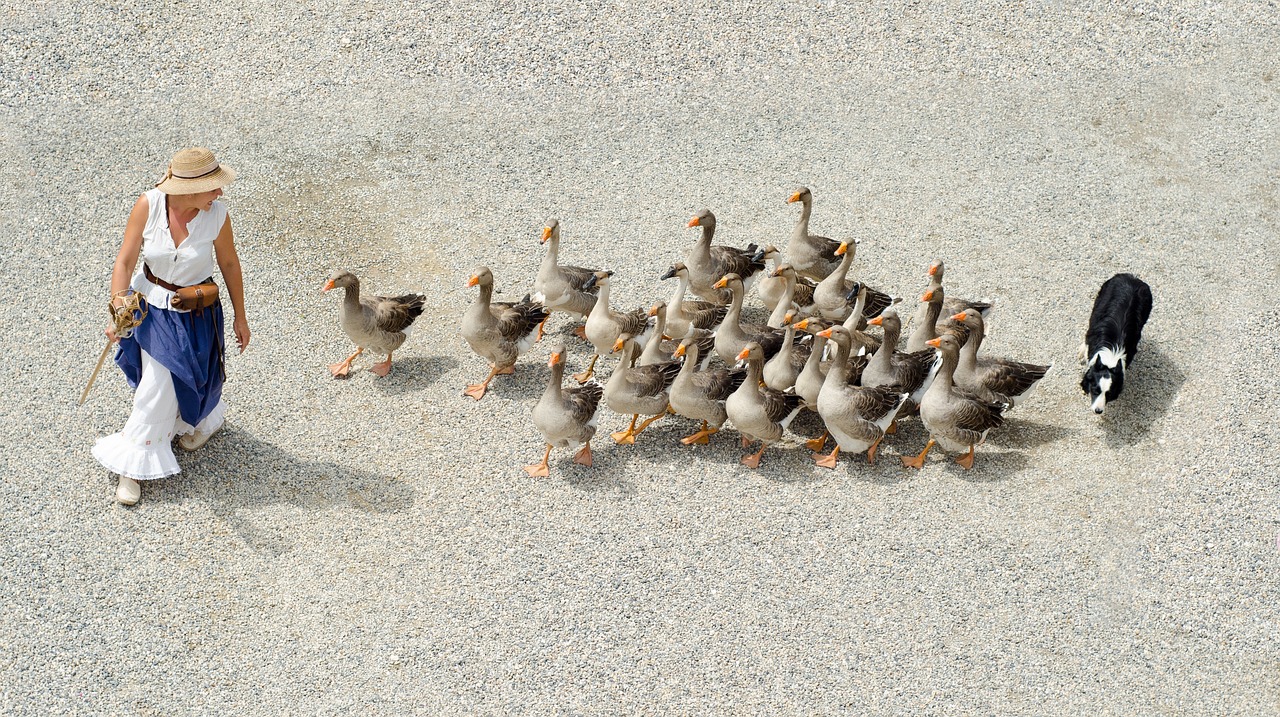
Training and Socialization
Training a Shikoku dog can be an exhilarating experience, but it also requires a good dose of patience and consistency. These dogs are known for their independent streak, which can sometimes make them seem a bit stubborn. However, with the right approach, you can turn this spirited nature into a positive trait. Imagine trying to convince a cat to take a bath—it's a bit like that with Shikokus! They have their own ideas about what they want to do, and it’s your job to guide them gently.
The key to successful training is starting early. Early socialization is crucial for Shikoku puppies to grow into well-adjusted adults. This means exposing them to a variety of environments, people, and other animals. Think of it as giving them a passport to the world; the more experiences they have, the more confident and adaptable they will become. Socialization helps prevent behavioral issues down the line and allows them to interact positively with others.
When it comes to training techniques, positive reinforcement is the name of the game. This method involves rewarding your Shikoku for desired behaviors, which not only encourages them to repeat those behaviors but also strengthens the bond between you two. Imagine how much more motivated you would be to do a task if you were rewarded for it! Whether it’s a treat, praise, or a favorite toy, find what makes your Shikoku tick and use it to your advantage.
However, it's important to be aware of some common behavioral issues that may arise if training and socialization are overlooked. Without proper guidance, Shikoku dogs can become stubborn or even aggressive. This is why early intervention is essential. If you notice any signs of undesirable behavior, addressing them promptly can help maintain a harmonious household. For example, if your Shikoku is overly protective of their toys, redirecting that behavior with positive reinforcement can help them learn sharing is caring!
In summary, training and socialization for a Shikoku dog is not just about teaching commands; it’s about building a trusting relationship that enhances both your lives. With patience, consistency, and a sprinkle of fun, you can cultivate a well-behaved and happy Shikoku that is a joy to have around.
- How long does it take to train a Shikoku? Training duration varies, but with consistent practice, basic commands can be taught within a few weeks.
- Are Shikoku dogs easy to socialize? While they can be independent, early socialization makes the process easier and more effective.
- What are some effective training methods for Shikoku dogs? Positive reinforcement techniques, such as treats and praise, work best for this breed.
- Can Shikoku dogs be trained for agility sports? Absolutely! Their agility and intelligence make them excellent candidates for various dog sports.
Positive Reinforcement Techniques
Training a Shikoku dog can be an incredibly rewarding experience, especially when you understand and embrace the power of . These methods focus on rewarding desirable behaviors rather than punishing unwanted ones, fostering a trusting and respectful relationship between you and your furry friend. Imagine your Shikoku as a student eager to learn; when you use positive reinforcement, you're essentially offering them a treat for their hard work, which encourages them to keep trying!
One of the most effective ways to implement positive reinforcement is through treats. Shikoku dogs are food-oriented, and a small, tasty reward can work wonders. However, it's important to choose healthy treats that complement their diet. For example, you might use small pieces of cooked chicken or commercial dog treats that are low in calories. The key is to ensure that the reward is immediate—give the treat right after the desired behavior to create a strong connection in their minds.
Another valuable technique is verbal praise. Your Shikoku will thrive on your approval, so using a cheerful tone and enthusiastic words can significantly enhance their motivation. Phrases like "Good boy!" or "Well done!" can become powerful tools in your training arsenal. Combine this with physical affection, such as petting or a gentle scratch behind the ears, and you'll create a positive atmosphere that encourages your dog to repeat the behavior.
In addition to treats and praise, incorporating playtime as a reward can also be incredibly effective. Shikoku dogs are energetic and playful, so using their favorite toy as a reward can reinforce good behavior. For instance, if your Shikoku sits on command, immediately follow up with a game of fetch or tug-of-war. This not only reinforces the behavior but also strengthens your bond through shared fun.
It's essential to remember that consistency is key when using positive reinforcement. Always reward the same behavior in the same way, so your Shikoku understands exactly what you expect. Over time, you can gradually reduce the frequency of treats as your dog learns the commands, transitioning to praise and play as the primary rewards. This method not only helps in training but also builds a strong relationship based on trust and mutual respect.
To summarize, here are some effective positive reinforcement techniques for training your Shikoku dog:
- Treats: Use small, healthy treats to reward good behavior immediately.
- Verbal Praise: Encourage your dog with enthusiastic words and a cheerful tone.
- Playtime: Incorporate their favorite games as a reward for good behavior.
By adopting these positive reinforcement techniques, you'll not only train your Shikoku dog effectively but also create a loving and supportive environment that enhances their happiness and well-being. Remember, a well-trained Shikoku is a happy Shikoku!
Q: How long does it take to train a Shikoku dog using positive reinforcement?
A: The time it takes to train a Shikoku dog varies based on the individual dog and the consistency of training. Generally, with regular practice and positive reinforcement, you can expect to see significant progress within a few weeks.
Q: Can I use negative reinforcement in training?
A: While some trainers may use negative reinforcement, it is generally less effective and can damage the bond between you and your dog. Positive reinforcement is recommended as it fosters trust and encourages a positive learning experience.
Q: What if my Shikoku isn't motivated by treats?
A: Every dog is unique! If your Shikoku isn't motivated by treats, try using toys, playtime, or even affection as rewards. The goal is to find what excites and motivates your dog the most.
Common Behavioral Issues
Shikoku dogs, with their spirited and independent natures, can sometimes exhibit a range of behavioral issues if not properly trained and socialized. Understanding these challenges is crucial for any prospective owner. One of the most common issues is stubbornness. Shikokus are known for their strong will, which can make training sessions feel like a battle of wills. Imagine trying to convince a toddler to eat their vegetables; sometimes, it just isn't going to happen without a clever strategy!
Another potential issue is aggression, particularly if the dog has not been socialized early on. Shikokus are naturally protective of their families, but without proper exposure to different people and environments, they may become wary or even hostile towards strangers. It's essential to introduce them to various situations and individuals during their formative months to help them grow into well-adjusted adults.
Additionally, separation anxiety can be a concern for Shikoku owners. These dogs thrive on companionship and can become distressed when left alone for extended periods. This anxiety may manifest in destructive behaviors, such as chewing furniture or barking excessively. To mitigate this, it's important to gradually acclimate your Shikoku to being alone, using techniques like crate training and providing engaging toys to keep them occupied.
To help you better understand these issues, here’s a quick overview:
| Behavioral Issue | Description |
|---|---|
| Stubbornness | Resistance to training commands, requiring patience and consistency. |
| Aggression | Protective instincts can lead to hostility towards strangers if not socialized. |
| Separation Anxiety | Distress when left alone, potentially leading to destructive behaviors. |
By being aware of these common behavioral issues and taking proactive steps to address them, you can ensure a harmonious relationship with your Shikoku. Remember, early training and socialization are your best tools to prevent these problems from arising. Just like planting a seed, nurturing your Shikoku with love, patience, and consistency will help them grow into a well-behaved and loyal companion.
- What is the best way to train a Shikoku? Consistency and positive reinforcement are key. Use treats and praise to encourage good behavior.
- How much exercise does a Shikoku need? Shikokus require daily exercise, including walks, playtime, and mental stimulation to keep them happy and healthy.
- Are Shikoku dogs good with children? Yes, with proper socialization, Shikokus can be excellent companions for children, but supervision is always recommended.
- What health issues should I be aware of? Common health concerns include hip dysplasia and eye conditions. Regular vet check-ups are essential.

Health Considerations
Just like any other breed, Shikoku dogs come with their own set of health considerations that every owner should be aware of. These loyal companions are generally robust, but they are not immune to certain health issues. Understanding these potential problems allows you to take proactive steps in caring for your furry friend, ensuring they lead a long and healthy life. Regular veterinary check-ups are essential, as they help in early detection of any health concerns.
One of the most common health issues seen in Shikoku dogs is hip dysplasia. This condition occurs when the hip joint doesn’t fit snugly into the hip socket, leading to arthritis over time. Keeping an eye on your dog’s mobility can help you catch any signs early. If you notice them limping or hesitating to jump, it might be time to consult your vet. Another issue they can face is various eye conditions, such as cataracts or progressive retinal atrophy. Regular eye examinations can help in diagnosing these problems before they escalate.
To ensure your Shikoku remains in peak condition, a balanced diet is crucial. Feeding them high-quality dog food that meets their nutritional needs will provide the building blocks for a healthy life. Additionally, keeping them at a healthy weight is vital, as obesity can exacerbate existing health problems, particularly joint issues. Always consult your veterinarian for advice on the best diet plan tailored for your Shikoku.
Preventative care should not be overlooked. Here are some essential aspects of preventative care for Shikoku dogs:
- Routine Veterinary Visits: Schedule regular check-ups to catch any potential health issues early.
- Vaccinations: Ensure your dog is up-to-date on all vaccinations to protect against common diseases.
- Dental Care: Regular dental cleanings can prevent gum disease and other dental issues.
By staying proactive and informed about your Shikoku's health needs, you can help them enjoy a vibrant and active life. Remember, a healthy dog is a happy dog!
Q: How often should I take my Shikoku to the vet?
A: It's recommended to take your Shikoku for a check-up at least once a year, but more frequent visits may be necessary as they age or if any health issues arise.
Q: What should I feed my Shikoku?
A: A high-quality, balanced diet tailored to your dog's age, size, and activity level is essential. Consult your vet for specific recommendations.
Q: Are Shikoku dogs prone to any genetic conditions?
A: Yes, they can be prone to hip dysplasia and certain eye conditions. Regular vet check-ups can help monitor for these issues.
Q: How can I keep my Shikoku healthy?
A: Regular exercise, a balanced diet, proper grooming, and routine veterinary care are key to maintaining your Shikoku's health.
Common Health Issues
Just like any other breed, Shikoku dogs come with their own set of health concerns that owners should be aware of. While these dogs are generally robust and healthy, there are a few common health issues that can affect them throughout their lives. One of the most prevalent concerns is hip dysplasia, a genetic condition where the hip joint doesn't fit snugly into the hip socket. This can lead to discomfort, pain, and even arthritis as the dog ages. It's essential for Shikoku owners to be vigilant about their dog's mobility and comfort levels.
Another health issue that can arise in Shikokus is related to their eyes. Conditions such as cataracts and progressive retinal atrophy (PRA) can affect their vision and overall quality of life. Regular veterinary check-ups are crucial, as early detection can often lead to better management of these conditions. By being proactive about your Shikoku's health, you can help ensure they lead a happy and fulfilling life.
To give you a clearer picture, here’s a table summarizing some common health issues in Shikoku dogs:
| Health Issue | Description | Prevention/Treatment |
|---|---|---|
| Hip Dysplasia | A genetic condition affecting the hip joint, leading to pain and mobility issues. | Regular vet check-ups, maintaining a healthy weight, and avoiding excessive exercise. |
| Cataracts | Clouding of the lens in the eye, affecting vision. | Regular eye examinations and possible surgical intervention. |
| Progressive Retinal Atrophy (PRA) | A degenerative eye condition that can lead to blindness. | No cure, but early detection can help manage the condition. |
Being aware of these potential health issues allows you to take proactive measures to ensure your Shikoku's well-being. Regular veterinary visits, a balanced diet, and an active lifestyle can significantly contribute to preventing these health problems. Remember, your Shikoku depends on you for their health and happiness, so staying informed is key!
- What is the average lifespan of a Shikoku dog? The average lifespan is around 12 to 15 years, depending on their overall health and care.
- Are Shikoku dogs good with children? Yes, they can be great with children if properly socialized from a young age.
- How much exercise do Shikoku dogs need? Shikoku dogs are active and require at least an hour of exercise each day to stay healthy and happy.
- Do Shikoku dogs shed a lot? They have a double coat and do shed, especially during shedding seasons, so regular grooming is recommended.
Preventative Care
When it comes to ensuring the health and happiness of your Shikoku dog, is absolutely crucial. Just like how we humans go for regular check-ups to catch any potential health issues early, your furry friend deserves the same level of attention. This proactive approach not only enhances their quality of life but also extends their lifespan, allowing you to enjoy many more years of companionship.
A well-rounded preventative care routine for your Shikoku should include:
- Regular Veterinary Visits: Schedule annual check-ups with a veterinarian who understands the unique needs of the Shikoku breed. During these visits, your vet will perform a thorough examination and discuss vaccination schedules.
- Vaccinations: Keeping your Shikoku up to date on vaccinations is vital. Vaccines protect against serious diseases, and your vet can provide a tailored vaccination schedule based on your dog's age, health status, and lifestyle.
- Dental Care: Oral health is often overlooked, but it’s essential for your Shikoku's overall well-being. Regular brushing and professional dental cleanings can prevent periodontal disease and other health issues.
- Parasite Prevention: Fleas, ticks, and worms can pose significant health risks. Use preventative treatments as recommended by your veterinarian to keep these pesky parasites at bay.
In addition to these basic preventative measures, it’s important to monitor your Shikoku’s weight and diet. Obesity can lead to a range of health problems, including joint issues and heart disease. A balanced diet, tailored to their specific needs, is essential. Consult your vet for guidance on the best food options, portion sizes, and feeding schedules.
Moreover, regular exercise is a key component of preventative care. Shikoku dogs are energetic and intelligent, so they require daily physical activity to stay healthy and mentally stimulated. Engaging them in activities like hiking, agility training, or even simple fetch games can keep them fit and happy. Remember, a tired dog is a well-behaved dog!
Furthermore, keeping an eye on their behavior and physical appearance can help you spot any potential health issues early. Changes in appetite, energy levels, or unusual behaviors can be signs that something might be wrong. If you notice any of these changes, don’t hesitate to consult your veterinarian.
In summary, a comprehensive preventative care routine for your Shikoku dog involves regular veterinary visits, vaccinations, dental care, parasite prevention, a balanced diet, and consistent exercise. By prioritizing these aspects, you can help ensure that your loyal companion enjoys a long, healthy, and fulfilling life.
Here are some common questions that new Shikoku owners often ask:
- How often should I take my Shikoku to the vet? It's recommended to visit the vet at least once a year for routine check-ups and vaccinations. However, if you notice any health changes, consult your vet immediately.
- What should I feed my Shikoku? A high-quality dog food that meets their nutritional needs is essential. Consult your vet for specific recommendations based on your dog's age, weight, and activity level.
- How much exercise does a Shikoku need? Shikoku dogs are active and require at least 1 hour of exercise each day. Activities like walks, playtime, and training sessions are great for keeping them fit and engaged.
- Are Shikoku dogs prone to any specific health issues? Yes, they can be susceptible to hip dysplasia and certain eye conditions. Regular vet check-ups can help catch these issues early.
Frequently Asked Questions
- What is the origin of the Shikoku dog?
The Shikoku dog hails from Japan, specifically the Shikoku island. This breed has a rich history as a hunting dog, originally used for tracking and hunting game. Understanding its origins gives insight into its unique traits and the cultural significance it holds in Japan.
- What are the physical characteristics of a Shikoku dog?
Shikoku dogs are medium-sized with a sturdy build, featuring erect ears and a curled tail. Their double coat is weather-resistant, and they come in various colors, including sesame, red, and black and tan. These traits contribute to their agility and strength, making them excellent working companions.
- How should I train my Shikoku dog?
Training a Shikoku requires patience and consistency due to their independent nature. Using positive reinforcement techniques, such as treats and praise, can foster a trusting relationship. Early socialization is also crucial to ensure they grow into well-adjusted adults capable of interacting positively with people and other pets.
- What are common behavioral issues in Shikoku dogs?
Without proper training and socialization, Shikoku dogs may develop issues like stubbornness or aggression. It's important to identify and address these behavioral problems early on to maintain a harmonious household. Regular training sessions and social interactions can help mitigate these issues.
- What health issues are Shikoku dogs prone to?
Shikoku dogs can be susceptible to certain health problems, including hip dysplasia and eye conditions. Regular veterinary check-ups and being aware of these potential issues are essential for ensuring their health and longevity. Proactive measures can significantly contribute to their overall well-being.
- How can I ensure my Shikoku dog stays healthy?
Routine veterinary care, including vaccinations and dental check-ups, is vital for maintaining a Shikoku's health. A balanced diet and regular exercise also play crucial roles in their overall well-being. Preventative care helps catch any health issues early, contributing to a longer, healthier life.



